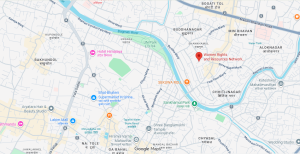The discussion centered around inter-generational issues in forest management, with a focus on integrating youth and women’s perspectives. The Chuchhekhola CFUG, which began its journey on what was once a barren and degraded landscape, has transformed into a healthy and thriving forest ecosystem over the years. This remarkable turnaround is due to the community’s persistent efforts in afforestation and forest restoration, coupled with their deep-rooted knowledge of sustainable forest management practices. However, despite their practical experience and success in restoring the forest, many members remain unaware of certain rules and regulations governing modern forest management, which could limit their ability to fully benefit from their hard work.
The session began with an introductory segment, followed by a presentation from Dr. Yadav. He addressed key topics including Sustainable Forest Management (SFM), Agroforestry, Eco-tourism, Forest Conservation, and Forest Utilization. Dr. Yadav stressed the importance of integrating the views of youth and women, emphasizing that their participation is critical to that SFM involves not only tree management but also biodiversity conservation, economic sustainability, and social governance. This holistic approach ensures that marginalized groups, particularly women and youth, have a voice in decision-making processes. Dr. Yadav also discussed the potential of agroforestry to enhance biodiversity while improving livelihoods through diversified income sources. He highlighted silviculture as the backbone of SFM, pointing out its importance in maintaining forest health and ensuring the continuous provision of forest products, crucial for Nepal’s goal to bring a substantial portion of its forests under sustainable management by 2025.
Furthermore, Dr. Yadav emphasized eco-tourism as a key strategy for sustainable development. He underscored that eco-tourism can generate revenue for local communities while promoting conservation efforts. Engaging youth and women in eco-tourism initiatives can create job opportunities, support local economies, and foster a culture of environmental stewardship. A crucial part of the discussion revolved around the development of Operational Plans (OPs) for CFUGs. These plans include silvicultural operations, harvesting schedules, and benefit-sharing mechanisms. Dr. Yadav stressed the importance of active participation from all user group members to ensure that OPs reflect local needs and align with broader forest management strategies.
During post session after break, Ms. Bharati Pathak further illustrated the importance of understanding OPs by recounting an example from the Lamjung Community Forest. She described a situation where the Chairperson, unaware of the regulations, collected Mugwort plants to produce oil after attending training on Mugwort management. This resulted in legal action, highlighting the need for CFUG leaders to be fully informed about OP regulations.
In conclusion, Dr. Yadav emphasized the importance of continued dialogue and collaboration among government bodies, civil society organizations, and local communities. He believes that by fostering partnerships and maintaining an inclusive approach that values diverse perspectives, Nepal’s forestry sector can achieve its sustainability and resilience goals, benefiting both current and future generations.





